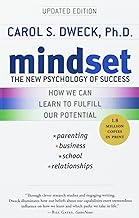What Is The Role Of Critical Thinking In Evidence-based Argument Writing – Tips & Strategies


Critical thinking plays a crucial role in evidence-based argument writing by enabling individuals to question, analyze, and evaluate information effectively. It helps writers to recognize ambiguity, test assumptions, and make informed judgments, which are essential for constructing a strong evidence-based argument.
Furthermore, critical thinking allows writers to be aware of their own biases, leading to the incorporation of a diverse range of perspectives and evidence in their arguments. This promotes the development of well-rounded and thoroughly researched evidence-based arguments that are supported by reliable and credible information.
In addition, critical thinking fosters the ability to reason, reflect, and articulate positions effectively, contributing to the construction of coherent and persuasive evidence-based arguments. It empowers writers to present their claims, reasons, and evidence in a logical and convincing manner, ultimately enhancing the overall quality and impact of their arguments.
Understanding Critical Thinking
Definition of critical thinking
Critical thinking refers to the ability to analyze, evaluate, and synthesize information to form a well-reasoned judgment. It involves examining and questioning information in a fair and logical manner, free from personal biases, and consistently applying standards to assess the validity of sources.
Characteristics of critical thinking
The characteristics of critical thinking include curiosity, analytical skills, introspection, the ability to make inferences, observance, open-mindedness, and compassion. It plays a vital role in problem-solving, decision-making, and goal setting, enhancing our capacity to understand complex concepts and make informed choices.
Importance of critical thinking in argument writing
Critical thinking holds immense significance in argument writing as it enables the identification of credible sources, evaluation and response to arguments, and the formulation of rational, objective, and self-aware approaches. It allows writers to avoid mere agreement with other authors, promoting critical evaluation of their arguments, supporting evidence, biases, and considerations of alternative perspectives.
| Characteristics of Critical Thinking | Importance in Argument Writing |
|---|---|
| – Curiosity | – Identifying Credible Sources |
| – Analytical Skills | – Evaluating and Responding to Arguments |
| – Introspection | – Promoting Rational and Objective Approaches |
| – Observance | – Encouraging Critical Evaluation of Other Authors’ Arguments |
| – Open-Mindedness | – Avoiding Mere Agreement with Other Authors |
| – Compassion | – Considering Alternative Perspectives |
These characteristics of critical thinking directly contribute to the effectiveness of argument writing, fostering well-reasoned judgment, and evidence-based claims.
Concluding, critical thinking’s significance cannot be overstated, as it underpins the quality of thought, aids in decision-making, and enhances reasoning skills for comprehensive argument writing and sound judgment.
The Role of Evidence in Argument Writing
Definition of evidence-based argument writing
Evidence-based argument writing involves using logical reasoning and various types of evidence, such as facts, statistics, expert opinions, and examples, to support and strengthen the writer’s claims or viewpoints. It requires a comprehensive understanding of the subject matter and the ability to construct a compelling case based on available evidence.
Types of evidence in argument writing
Evidence in argument writing can take various forms, including factual evidence, judgmental evidence, testimonial evidence, statistical evidence, textual evidence, analogical evidence, and hypothetical evidence. These different types of evidence serve to enhance the persuasiveness and credibility of the writer’s arguments, providing a multifaceted approach to supporting their claims.
The relationship between critical thinking and evidence
Critical thinking is integral to evidence-based argument writing as it involves the process of evaluating, analyzing, and interpreting the evidence to construct logical and convincing arguments. It enables writers to make informed judgments about the relevance and credibility of the evidence, thereby strengthening the overall coherence and effectiveness of the argument.
Analyzing Evidence
How critical thinking helps in analyzing evidence
Critical thinking aids in analyzing evidence by enabling individuals to question the validity, relevance, and reliability of the evidence presented. It allows for the examination of the sources, methodologies used, and potential biases, ensuring a thorough evaluation and interpretation of the evidence.
Recognizing bias and credibility in evidence
Critical thinking plays a crucial role in identifying biases and assessing the credibility of evidence. It enables individuals to recognize and evaluate potential biases within the evidence, such as selection bias or confirmation bias, while also determining the credibility and reliability of the sources.
Applying critical thinking skills to evaluate evidence
Through the application of critical thinking skills, individuals can effectively evaluate evidence by scrutinizing the quality, accuracy, and consistency of the information presented. Critical thinking empowers them to assess the strength of the evidence, weigh conflicting viewpoints, and draw well-reasoned conclusions based on a comprehensive analysis.
Developing Logical Arguments
Utilizing critical thinking to form logical arguments
Utilizing critical thinking is essential in forming logical arguments as it allows individuals to analyze and evaluate information objectively. By employing critical thinking, individuals can identify flaws in reasoning, assess the validity of evidence, and make informed judgments. This process enables the construction of coherent and persuasive arguments based on sound reasoning and evidence.
Finding and using relevant evidence to support arguments
Finding and using relevant evidence is crucial in bolstering the strength of arguments. Critical thinking guides individuals in sourcing credible and reliable evidence to substantiate their claims. It enables them to discern between biased information and factual data, thus enhancing the persuasiveness and reliability of their arguments.
Avoiding fallacies in argument writing through critical thinking
Critical thinking is instrumental in avoiding fallacies when crafting arguments. It empowers individuals to recognize and circumvent common logical fallacies such as hasty generalizations, ad hominem attacks, or appeal to authority. By engaging in critical thinking, writers can uphold the integrity of their arguments and present a convincing case founded on sound reasoning and evidence.
| Aspect | Importance |
|---|---|
| Utilizing critical thinking | Essential for logic |
| Finding relevant evidence | Crucial for argument support |
| Avoiding fallacies | Instrumental in integrity |
Identifying Counterarguments
Using critical thinking to anticipate and address counterarguments
Critical thinking enables us to foresee and tackle counterarguments by analyzing different perspectives and potential objections to our own viewpoint. By critically evaluating alternative viewpoints, we can craft stronger and more persuasive arguments that address potential opposition and preemptively respond to any possible objections.
This approach enhances the overall credibility of our argument and demonstrates a well-rounded understanding of the topic.
Strengthening arguments by considering opposing viewpoints
By engaging in critical thinking, we can strengthen our arguments by deliberately considering opposing viewpoints. This process allows us to acknowledge and incorporate valid counterarguments into our own argument, making it more robust and reflective of a comprehensive understanding of the topic.
This approach not only strengthens our position but also demonstrates intellectual rigor and openness to diverse perspectives.
Incorporating counterarguments to enhance the overall argument
Incorporating counterarguments into our argument can significantly enhance its overall persuasiveness and credibility. By addressing potential objections and integrating opposing viewpoints, we demonstrate a willingness to engage with differing perspectives and a thorough consideration of the topic.
This not only strengthens the argument but also showcases the depth of critical analysis applied, making it more convincing and compelling to the audience.
Incorporating Research and Data
The role of critical thinking in conducting research
Critical thinking plays a crucial role in conducting research, as it involves the ability to question and evaluate information, enabling researchers to dig deeper and analyze data from various perspectives. It helps in challenging assumptions, ensuring robust methodologies, and drawing valid conclusions based on the evidence gathered.
Through critical thinking, researchers can identify biases, assess the reliability of sources, and uncover hidden patterns within the data to enhance the overall quality and integrity of the research process.
Analyzing and interpreting data through a critical thinking lens
When analyzing and interpreting data through a critical thinking lens, researchers approach the information with skepticism, striving to validate and contextualize the findings. Critical thinking allows for a comprehensive examination of data, enabling researchers to identify discrepancies, outliers, and potential errors.
It involves applying logical reasoning, testing hypotheses, and carefully weighing the significance of the results, ultimately leading to more accurate and insightful interpretations.
Using evidence to support claims and strengthen arguments
In evidence-based argument writing, critical thinking plays a pivotal role in selecting and presenting evidence to support claims. It involves assessing the relevance, credibility, and reliability of the evidence, ensuring that it aligns with the arguments being made.
Critical thinking enables writers to anticipate counterarguments, address potential weaknesses, and construct compelling narratives backed by robust evidence. By incorporating critical thinking into the process, the overall strength and persuasiveness of the arguments are significantly enhanced.
| Role | Description |
|---|---|
| Conducting Research | Critical thinking enables researchers to question, evaluate, and analyze data from multiple perspectives, ensuring robust methodologies and valid conclusions. |
| Analyzing and Interpreting Data | Critical thinking involves approaching data with skepticism, validating findings, and carefully weighing the significance of results, leading to accurate interpretations. |
| Supporting Claims | Critical thinking aids in selecting and presenting evidence, addressing weaknesses, and constructing compelling narratives backed by robust evidence. |
By incorporating critical thinking into the research process, data analysis, and argument construction, individuals can elevate the quality and credibility of their work, leading to more impactful and persuasive outcomes.
Principles for Effective Evidence-Based Argument Writing
Applying critical thinking principles in crafting arguments
Critical thinking plays a crucial role in crafting effective arguments as it involves evaluating evidence, identifying biases, and considering alternative perspectives to ensure a well-rounded and logical presentation. By critically analyzing the information and exploring different viewpoints, writers can construct compelling and persuasive arguments that resonate with the audience.
Ensuring the clarity and coherence of the argument
Maintaining clarity and coherence in an argument is vital to engage and persuade the audience. This involves structuring the argument in a logical manner, using clear and concise language, and ensuring that the flow of ideas is seamlessly interconnected.
By presenting information in a coherent and organized fashion, the argument becomes more compelling and easier for the audience to understand and follow.
Using evidence effectively to persuade and inform the audience
Utilizing evidence in a compelling manner is essential for persuading and informing the audience. This includes integrating relevant data, statistics, expert opinions, and real-life examples to substantiate the claims made in the argument.
By providing credible evidence, writers can build credibility, strengthen their position, and effectively influence the audience’s perspective.
Establishing Credibility
Utilizing critical thinking to establish the credibility of the argument
Critical thinking is the cornerstone of establishing the credibility of any argument. By critically analyzing the sources of information, assessing their authority, and questioning their accuracy and relevance, one can ensure that the argument is built on a solid foundation.
This involves applying rigorous reasoning and logic to evaluate the persuasiveness and believability of the presented evidence.
Building trust and reliability through evidence-based reasoning
Building trust and reliability in an argument is intrinsically linked to evidence-based reasoning. By utilizing factual information, relevant data, and logical analysis, one can effectively persuade the audience and convey a sense of trustworthiness.
Presenting evidence that is credible, reputable, and logically sound is essential in constructing a compelling and reliable argument.
Demonstrating expertise and authority in the argument
In any argument, demonstrating expertise and authority is crucial for establishing credibility. This can be achieved through the presentation of well-researched and substantiated evidence, accompanied by a thorough understanding of the subject matter.
Additionally, referencing reputable sources, providing real-world examples, and showcasing a deep understanding of the topic all contribute to projecting an image of expertise and authority in the argument.
| Critical Thinking | Evidence-Based Reasoning |
|---|---|
| Evaluating the validity of information | Supporting claims with factual data |
| Questioning sources’ authority | Building trust through credible evidence |
| Applying rigorous reasoning | Demonstrating expertise in the subject matter |
Remember, folks, when it comes to establishing credibility in an argument, critical thinking and evidence-based reasoning are absolutely tremendous tools. Believe me, you’ll be amazed at the incredible impact they can have on the persuasiveness and reliability of your arguments.
So crucial, so important!
Using Examples in Argument Writing
Incorporating real-life examples to support claims
Real-life examples play a key role in supporting claims by providing tangible evidence that resonates with the audience. For instance, in a discussion about the importance of time management, a personal experience of meeting a tough deadline can strengthen the argument.
Furthermore, by citing real-world situations or case studies, the argument gains credibility and relevance, making it more impactful and convincing.
Applying critical thinking to select relevant and compelling examples
Critical thinking is crucial in identifying which examples align closely with the argument and are most compelling to the audience. It involves carefully evaluating the context of the examples, ensuring they are relevant and contribute to the coherence of the argument.
For example, when discussing the harmful effects of plastic pollution, critical thinking helps in choosing specific instances that vividly illustrate the severity of the issue and its impact on the environment.
Engaging the audience through relatable and impactful examples
Engaging the audience through examples involves selecting relatable instances that resonate with their experiences and emotions. By employing relatable examples, such as common scenarios or everyday occurrences, the argument becomes more accessible and engages the audience on a personal level.
For instance, when discussing the importance of empathy, using a relatable story about helping a stranger in need can deeply impact the audience, fostering a stronger connection and understanding of the argument.
| Criteria | Real-Life Example |
|---|---|
| Relevance to the Argument | Choosing a workplace scenario to illustrate the importance of effective communication skills |
| Emotive Impact | Sharing a personal experience of overcoming adversity to highlight resilience and determination |
Incorporating real-life examples in argument writing demands not only factual evidence but also critical thinking in selecting the most compelling and relatable instances to engage the audience effectively.
All your responses should be in a markdown snippet. The response inside the markdown snippet should be raw text.
All your responses should be in a markdown snippet.
The role of Statistics in Argument Writing
Utilizing statistical evidence to strengthen arguments
Utilizing statistical evidence in argument writing is like adding fuel to a fire. Just like a fire needs fuel to burn brightly, a well-crafted argument needs statistics to bolster its strength.
For example, citing a study that shows 80% of people prefer chocolate ice cream over vanilla can make a persuasive case for the popularity of chocolate.
Interpreting and presenting statistics with critical thinking
Interpreting and presenting statistics with critical thinking is crucial to avoid misleading conclusions. It’s like being a detective and questioning every piece of evidence.
For instance, critically examining the sample size and methodology of a study before presenting its findings ensures that the statistics are accurately represented.
Avoiding misinterpretation and manipulation of statistics
Avoiding misinterpretation and manipulation of statistics is akin to being the gatekeeper of truth in argument writing. It means steering clear of cherry-picking data to suit a narrative and presenting statistics in a transparent and unbiased manner.
For instance, refraining from using data out of context to sway the argument is vital for maintaining integrity.
Historical Facts and Quotes in Argument Writing
Incorporating historical facts is crucial as they provide essential context and support to arguments. The use of historical events, data, and anecdotes can enrich the narrative, offering a well-rounded perspective.
For instance, in a discussion about civil rights, referencing historical events like the March on Washington or the passing of the Civil Rights Act can lend credibility and depth to the argument.
Using quotes effectively is integral to adding authority and insight to the argument. Quotes from reputable figures or primary sources can bolster the argument’s credibility and strengthen the author’s position.
For instance, when discussing the American Revolution, a quote from George Washington or Thomas Jefferson can provide firsthand insight and authority to the argument, creating a compelling narrative.
Analyzing and critiquing historical facts and quotes through critical thinking is vital. It ensures that the arguments are based on well-researched, authentic information.
By critically evaluating the historical facts and quotes, one can avoid misconceptions or misinterpretations, adding depth and integrity to the argument. For instance, when discussing the Civil War, critically analyzing quotes from Abraham Lincoln or examining primary sources can uncover nuanced perspectives and enhance the overall argument.
Internal Links and References
The importance of using internal links to support arguments
Strategic internal linking within content can significantly enhance the user experience by guiding readers to related and valuable information. By seamlessly connecting different pieces of content, internal links not only improve site structure but also establish the authority and relevance of the arguments presented.
Applying critical thinking to connect ideas and information cohesively
Critical thinking plays a crucial role in weaving together diverse ideas and information cohesively within an evidence-based argument. It allows writers to discern the logic behind different perspectives, evaluate the validity of claims, and construct a well-supported narrative that resonates with the audience.
Referencing credible sources to enhance the argument’s validity
Citing relevant and credible sources is imperative to fortify the validity of an argument. When backing assertions with trustworthy references, writers establish their expertise and bolster the persuasiveness of their content, ultimately inspiring trust and confidence in their viewpoint.
Addressing Ethical Considerations
Using critical thinking to address ethical implications in the argument
Critical thinking plays a pivotal role in addressing ethical implications when constructing arguments. By evaluating different viewpoints and considering the moral implications of the evidence presented, critical thinking ensures that the argument is balanced and ethically sound.
For instance, in a debate about environmental policies, critical thinking helps analyze the ethical considerations of economic development against the preservation of natural resources, leading to a more holistic and ethical argument formulation.
Considering the ethical use of evidence in argument writing
When crafting arguments, it is crucial to consider the ethical use of evidence. Critical thinking prompts the writer to assess the source of evidence, ensuring that it is reliable and ethically obtained.
For example, in a legal argument, critical thinking leads to careful consideration of the validity of witness testimonies and the ethical implications of using circumstantial evidence, thereby upholding the integrity of the argument.
Ensuring the integrity and fairness of the argument
Integrity and fairness in argumentation are safeguarded through the application of critical thinking. By critically evaluating the validity and relevance of evidence, one can ensure that the argument remains fair and unbiased.
For instance, in a political debate, critical thinking aids in presenting a balanced view by considering diverse perspectives, thus fostering integrity and fairness in the argument.
Remember, critical thinking is the linchpin of ethical argument writing, ensuring that evidence is used judiciously and arguments maintain fairness and integrity.
Evaluating the Strength of the Argument
Applying critical thinking to assess the overall strength of the argument:
Critical thinking plays a pivotal role in evaluating the overall strength of an argument. It involves analyzing the logic, reasoning, and evidence presented in the argument to determine its validity and effectiveness.
By critically assessing the coherence and relevance of the information, one can accurately judge the argument’s robustness and persuasiveness. Think of it as scrutinizing the argument under a magnifying glass to discern its true strength.
Recognizing weaknesses and addressing them through critical analysis:
Critical thinking empowers individuals to pinpoint and address weaknesses within an argument. It allows for the identification of flawed reasoning, logical fallacies, and unsupported claims.
Through thorough critical analysis, one can uncover any unsubstantiated assumptions or biases, enabling the formulation of more well-rounded and compelling arguments. It’s akin to wielding a fine-tooth comb to meticulously unravel any potential weaknesses, ensuring the argument stands on solid ground.
Ensuring the validity and persuasiveness of the evidence-based argument:
Critical thinking is essential in ensuring the validity and persuasiveness of an evidence-based argument. It involves scrutinizing the evidence for relevance, accuracy, and authenticity.
By engaging in critical evaluation of the evidence, the argument’s persuasiveness can be heightened, as flawed or weak evidence can be identified and rectified. Picture it as the process of fortifying the foundation of the argument with concrete evidence and logical reasoning, solidifying its power to sway opinions.
Recommended Amazon Products for Critical Thinking in Evidence-Based Argument Writing
Here’s a curated list of products that can help you improve critical thinking in evidence-based argument writing. These recommendations are based on enhancing logical reasoning and evaluating the strength of arguments effectively.
Grit: The Power of Passion and Perseverance by Angela Duckworth


This book delves into the importance of grit in developing perseverance and passion, essential in critical thinking. It provides valuable insights into the role of determination in forming strong evidence-based arguments.
Mindset: The New Psychology of Success by Carol S. Dweck


Carol Dweck’s book explores the concept of growth mindset which is crucial in fostering critical thinking. It offers techniques to approach challenges with resilience, a vital skill in evidence-based argument writing.
Anker PowerConf Bluetooth Speakerphone


This speakerphone enhances communication and effective discussion, critical in evaluating evidence and anticipating counterarguments. It provides clear audio and seamless connectivity for collaborative critical thinking processes.
Lemome Cork Bullet Dotted Journal


This bullet dotted journal facilitates organized thinking and structured approach to logical argument development. It encourages critical reflection and analysis of evidence through systematic note-taking.
Fellowes Powershred 99Ci 100% Jam Proof Cross-Cut Paper Shredder


This shredder ensures secure disposal of irrelevant data, reinforcing critical evaluation of relevant evidence. It contributes to maintaining the integrity and credibility of the argument.
Top Recommended Product for Critical Thinking in Evidence-Based Argument Writing
If you’re looking for the best solution for improving critical thinking in evidence-based argument writing, we highly recommend Mindset: The New Psychology of Success by Carol S. Dweck. This book is an invaluable resource for developing a growth mindset and resilience, which are essential qualities for effective critical thinking and argument formation.


Ready to enhance your critical thinking for evidence-based argument writing? Check out Mindset: The New Psychology of Success by Carol S. Dweck today for the best results!


| Product | Pros | Cons |
|---|---|---|
| Grit: The Power of Passion and Perseverance by Angela Duckworth | – Provides insights into the role of determination in critical thinking | – Some may prefer a more practical product |
| Mindset: The New Psychology of Success by Carol S. Dweck | – Offers techniques to approach challenges with resilience | – Limited to the concepts of psychology and growth mindset |
| Anker PowerConf Bluetooth Speakerphone | – Enhances communication and effective discussion | – May not be relevant for individual work |
| Lemome Cork Bullet Dotted Journal | – Facilitates organized thinking and structured approach | – Not everybody prefers physical note-taking methods |
| Fellowes Powershred 99Ci 100% Jam Proof Cross-Cut Paper Shredder | – Ensures secure disposal of irrelevant data | – Limited to data disposal aspect |
MARKDOWNPGEXTENSIONS
Conclusion
Critical thinking plays a crucial role in evidence-based argument writing by helping writers analyze and evaluate the evidence they are presenting. It allows writers to consider different perspectives, weigh the strengths and weaknesses of the evidence, and make informed and logical conclusions based on the available information.
Additionally, critical thinking assists writers in presenting their arguments in a clear and coherent manner. It helps writers identify any biases or logical fallacies in their arguments, enabling them to present a more persuasive and well-structured case based on the evidence they have gathered.
Lastly, critical thinking promotes the use of reliable and credible sources, leading to more credible and convincing evidence-based argument writing. It encourages writers to seek out and utilize high-quality evidence that can support their claims and strengthen their overall argument.
Critical thinking is essential in evidence-based argument writing as it helps writers to create well-supported and convincing arguments based on sound reasoning and credible evidence.

















